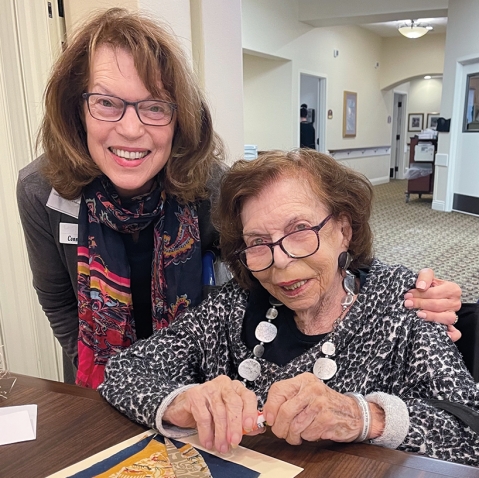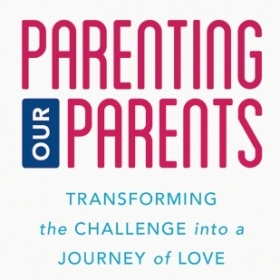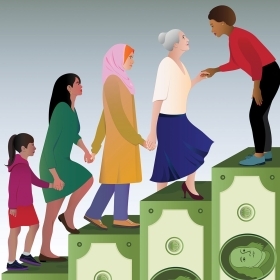For 13 years, until December 2022, Connie Whitman Baher ’63 coordinated her mother’s care. “For me, anybody who is a care coordinator is a caregiver,” Connie says. “You don’t have to be changing diapers and administering medicine, but you find you need to always be there.”
Connie’s mother, Sue Whitman, was a passionate watercolor artist. “I always had a pretty good relationship with my mom,” Connie says, “but we had not lived near each other for a long time.” But by the time her mother’s health began to decline, they were both living in California. “As happens in so many families, I was the one nearby,” says Connie. “And so her care just naturally fell to me.” Small strokes and advancing arthritis gradually took away her mother’s abilities, including her ability to paint, until a final stroke led to her death at 105.
“Early on, I was happy to be helping out,” Connie says. “But as the responsibilities grew, I saw that my life was being engulfed. I felt at times resentful and angry, and then guilty because I felt that way. Then there’s the constant drumbeat of grief, because I was witnessing my mother slowly dying.”
But she says she also found that caregiving created a “certain kind of intimacy that you don’t get in normal human relations.” One day, listening to her mother’s stories about her time on a farm in Connecticut, Connie realized, “[She was] adding up her life, getting ready to let go, and wanting to share it with me. And at that moment, without any need for words, our hearts just connected.”
To help other caregivers, Connie published Family Caregivers: An Emotional Survival Guide (Amazon). She now leads workshops and lectures for caregivers who are struggling. The time demands can be so unrelenting, she says, that people feel they have nothing left over for self-care. She advises trying what she calls minute mood hacks. “There’s a lot of research that says even one minute of meditation, or one minute of deep breathing or one minute of putting flowers in a vase, whatever it is that’s a joyful thing for you, can help you reset,” she says.
She adds, “Caregiving is one of the hardest jobs you’ll ever do. It’s one of the hardest and the most meaningful jobs.”








We ask that those who engage in Wellesley magazine's online community act with honesty, integrity, and respect. (Remember the honor code, alums?) We reserve the right to remove comments by impersonators or comments that are not civil and relevant to the subject at hand. By posting here, you are permitting Wellesley magazine to edit and republish your comment in all media. Please remember that all posts are public.